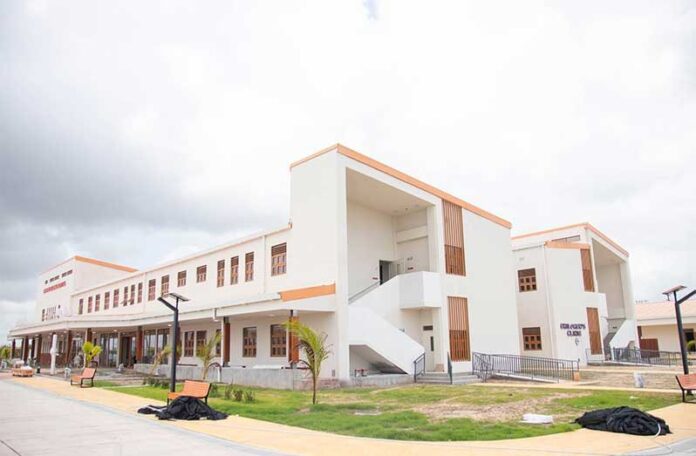Guyana advancing to new, modern healthcare system
- Home
- News


Head of the Internal Medicine and Cardiology at Georgetown Public Hospital Corporation, Dr Mahendra Carpen
In his commentary on Saturday, a Consultant Cardiologist and Presidential Advisor on Science and Healthcare Modernisation, Dr Mahendra Carpen, said the country’s position requires rapid development across all sectors, with health at the centre.
“When one compares Guyana to the rest of the world, we find ourselves in a very unique situation where we need to have accelerated development in all aspects of our lives, healthcare being a principal component of our being, ” he said.
Dr Carpen describes leapfrogging as a model that uses available resources and technology to move directly to more modern systems of care.
He says Guyana’s national healthcare strategy is evolving around four pillars, and these include infrastructure development, development of human resources, using technology to better deliver healthcare and data and research.
Pointing to a surge of new health centres, hospitals and community health facilities being constructed across the country, he says recreational spaces also contribute to a healthier lifestyle and overall wellbeing.

An internal view of the modern health facility
Dr Carpen highlighted that training is being expanded for all categories of healthcare workers, not only doctors and nurses, but also technicians, community health workers and medex personnel.
“There is accelerated training being done for persons so that they can provide appropriate health care to the citizens of Guyana,” he said.

Minister of Health Dr Frank Anthony flanked by graduates of the Clinical and Technical Training Programme
He stated that Guyana has embarked on significant, strong partnerships with overseas partners to aid the development of the country’s human resources.
“Our partners also help us to identify gaps and focus our resources on where we will get the biggest bang for a buck,” Dr Carpen said.
Technology, Dr Carpen stated, is central to the leapfrogging approach.
This includes the use of artificial intelligence, mobile apps and smart devices to help patients track their health, keep medical appointments and understand which tests they need.
With the upcoming digital ID card system, the PPP/C government plans to incorporate patients’ medical information, such as blood pressure readings, blood sugar levels, medications, allergies and previous investigations.
This, he explains, will allow a patient from one region to receive care in another, with doctors able to access their records instantly. Patients travelling overseas would also be able to share their information if they choose.

The final pillar, data and research, aims to strengthen the management of the wider health system.
“For example, inventory management. Oftentimes we have seen medications or supplies go in short and so this strategy would help us to identify within the sector where we are having shortages. It would help us predict what the usage is like so that we could plan the purchasing, we could plan our logistics, we could plan our supply train around this,” Dr Carpen explained.
He said these pillars are integral in advancing the country’s healthcare delivery to its patients and citizens.